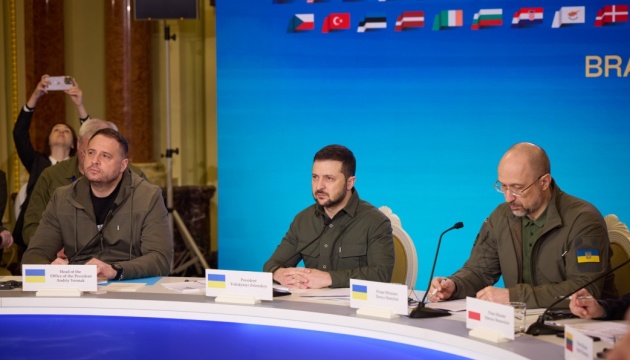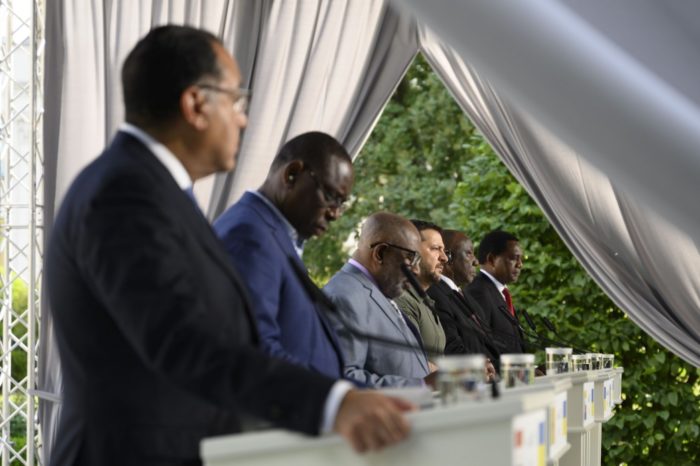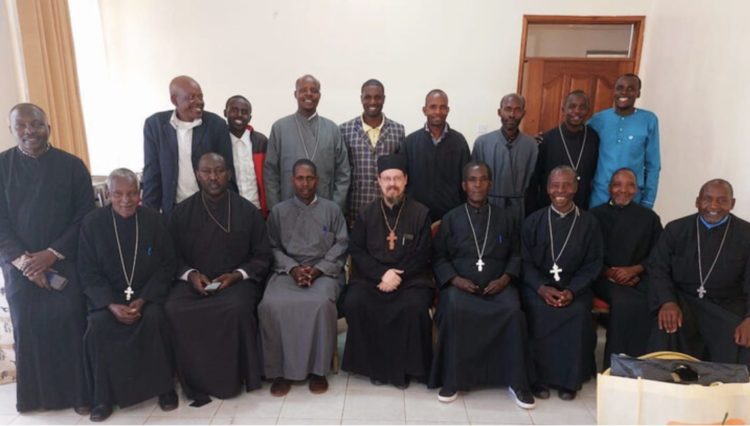Ukraine has raised $150 mn at the inaugural summit of the Grain from Ukraine initiative, aimed at overcoming food crisis in African countries.
More than 20 participating countries and the EU are taking part in the food security initiative and 10 more are preparing to join, Presdent Zelenskyy said during its inaugural summit held in Kyiv on 26 November, the day when Ukraine commemorated the 90th anniversary of the Holodomor, Ukrinform reports.
About 4 million Ukrainians are estimated to have been killed during 1932-1933 in Holodomor, an artificial famine created by the Soviet authorities.
Zelenskyy thanked countries which recognised Holodomor as genocide of Ukrainians
Claiming that "Grain from Ukraine" is one of the biggest contributors to global stability, Zelenskyy called on other states and socially responsible businesses to join the humanitarian initiative in which participating countries are to buy Ukrainian agricultural production to give it to countries at risk of hunger.
According to Zelenskyy, global security and protection of people are not empty words for Ukraine, because it country knows well what hunger is.
"Our people remember this terrible silence, which was precisely in those years – 1932-1933. Now, we must do everything possible to save as many people as possible and restore as many elements of global security as possible. We must deprive Russia of this weapon – a weapon called hunger," the President said.
Under the initiative, Ukraine plans to send at least 60 ships from its ports to countries at risk of famine and drought next year, namely, Ethiopia, Sudan, South Sudan, Somalia, Yemen, Congo, Kenya, and Nigeria, Zelenskyy said. One ship with grain provides food for about 90,000 people.
Germany has already purchased 27,000 tons of Ukrainian wheat, which will be sent to Ethiopia, the United States has allocated $20 mn for the purchase of Ukrainian food, and the Prime Minister of Poland has announced the allocation of $20 mn for this purpose.
Ukraine's Prime Minister Denys Shmyhal reminded that Ukraine, despite its own problems, had allocated UAH 900 mn ($244,000) for the purchase of wheat and corn for Sudan, Yemen, Kenya and Nigeria.
The initiative, held in partnership with the UN World Food Program, is made possible thanks to the unblocking of Ukrainian Black Sea ports in a grain deal signed in Istanbul on 22 July. The deal, consisting of two mirror agreements signed separately by Ukraine and Russia and Türkiye and the UN, saw Russia allow the export of grain from Ukrainian ports that were blocked in the first months of the war it unleashed in Febeuary.
Russia threatened to leave the initiative, endangering its functioning, in retaliation for Ukrainian military success in Russian-occupied Crimea, but on 2 November said it will continue participation. On 17 November, the grain deal was extended for 120 more days.
Two-thirds of Ukrainian grain exported through the grain deal reached Asian, African, and Middle East countries, according to Ukraine's Foreign Minister Dmytro Kuleba. As well, since the first ships with Ukrainian grain left its ports in August, world grain prices dropped by 5%, which is important for global food security, he said on September.
"These are real facts, and the Russians' fabrications about sending grain only to Europe are simply not true," the Minister said.
Speaking at the Grain from Ukraine summit, PM Shmyhal accused Russia of creating famine in vulnerable countries by blocking Ukrainian grain exports.
"The Kremlin now understands the importance of Ukraine as one of the guarantors of global food security and in every possible way blocks Ukrainian exports, thus creating artificial famine in other countries. Unfortunately, Russia, wants these victims, they are interested in a state of global instability, just as in 1933 they were interested in the death of Ukrainians," Shmyhal stressed.





